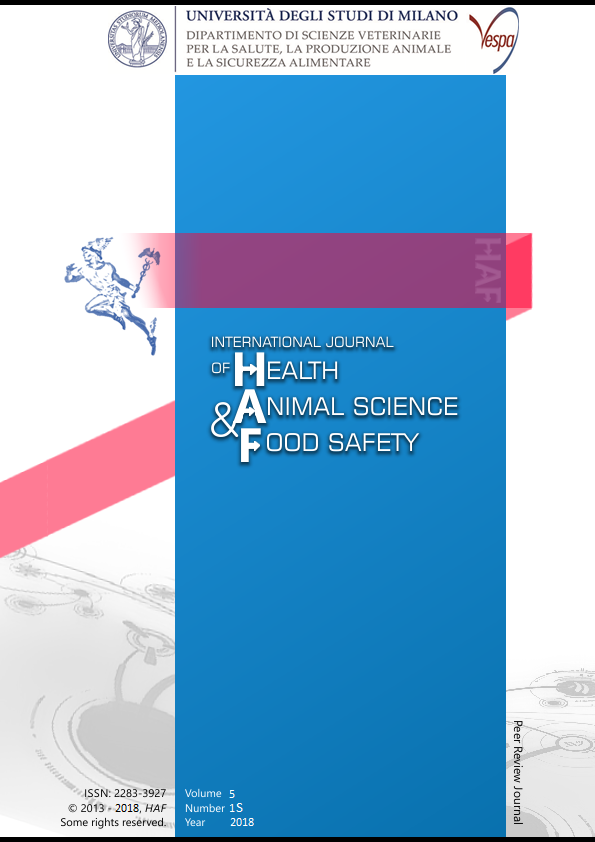Abstract
Feed additives are commonly used to improve pig performance and health, but they need to be tested so new biomarkers for intestinal health, non- or minimally invasive, are under investigations.
The quantification of Myeloperoxidase (MPO) and Pancreatitis Associated Protein (PAP) in feces could prove useful to non-invasively monitor intestinal health (Niewold, 2015). MPO is an enzyme that permits to quantify the number of inflammatory cells present in tissues and feces (Prokopowicz et al., 2012) , while PAP is a protein mainly produced in the small intestine with anti-inflammatory and bactericidal activity (Cash et al., 2006; Mukherjee et al., 2014). Because of the lack of a commercial ELISA kit for porcine PAP detection, the main aim of this study was to develop and validate a new sandwich ELISA test for the quantification of PAP in pig fecal samples. Our study consisted of two phases: test development and test validation. During the development phase we used polyclonal antibodies previously immunized from rabbit serum with a pure peptide containing the N-terminus of pig PAP (Soler et al., 2015). The validation of the test was then performed with fecal extraction samples derived from animals with known high or low growth performance.
Moreover, the temperature stability of PAP in feces and the optimal extraction method was tested. Even if only preliminary, our results seem to show a fair relationship between fecal consistency, used as health indicator, and PAP fecal concentrations. Furthermore, no relevant differences in PAP concentration after 24h of incubation at 37 °C, 4°C or room temperature were detected.
To date, the present results suggest that PAP seems to be exceptionally stable in feces and is a very promising candidate as a non-invasive (fecal) biomarker for intestinal health and growth.
References
Cash, H.L., Whitham, C.V., Behrendt C.L., Hooper L.V., 2006. Symbiotic bacteria direct expression of an intestinal bactericidal lectin. Science. 313, 1126-1130.
Mukherjee, S., Zheng, H., Derebe, M.G., Callenberg, K.M., Partch, C.L., Rollins, D., Propheter, D.C., Rizo, J., Grabe, M., Jiang, Q.X., Hooper, L.V., 2014. Antibacteria membrane attack by pore-forming intestinal C-Type lectin. Nature. 505, 103-107.
Niewold, T.A., 2015. Intestinal health biomarkers in vivo. In: Intestinal health. T.A. Niewold (ed.). Wageningen Academic Publishers. Chapter 9.
Prokopowicz, Z., Marcinkiewicz, J., Katz, D.R. and Chain, B.M., 2012. Neutrophil Myeloperoxidase: Soldier and statesman. Archivum Immunologiae et Therapiae Experimentalis. 60, 43–54.
Soler, L., Miller, I., Nöbauer, K., Carpentier, S., Niewold, T., 2015. Identification of the major regenerative III proteon (RegIII) in the porcine intestinal mucosa as RegIIIγ, not RegIIIα. Veterinary Immunology and Immunopathology. 167, 51-56.
This work is licensed under a CC BY-SA 4.0 international

